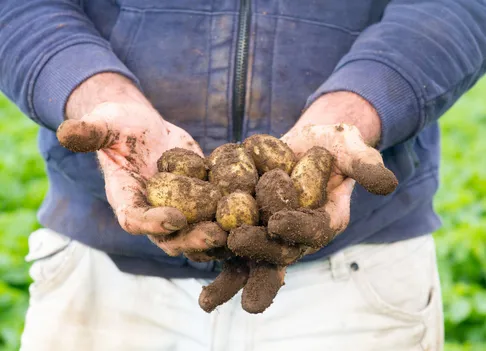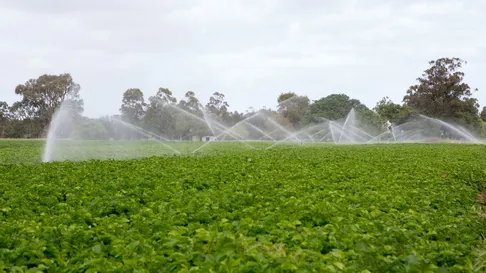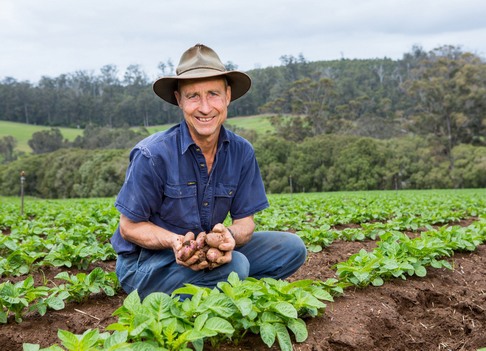The Western Australian French fry processing industry is bouncing back, according to the state's peak industry body, after suffering "a dramatic effect" from COVID-19, with sales crashing when lockdown restrictions were implemented.
However, WA Potatoes CEO Simon Moltoni says since WA has reopened, demand has returned to normal and sales have been quite strong.
"A concern going forward is that this has been an international issue; creating a significant oversupply that has the potential to end up on the Australian market," he said. "The potato industry has been lobbying the Federal Government to ensure that no dumping of frozen product occurs. Overall, volumes remain steady. The fresh and processing markets remain firm. Export of both Ware and Seed has seen incremental growth."

Photo credit: Anton Blume
WA plants and harvests potatoes year-round so are able to supply fresh potatoes 52 weeks of the year. In 2020, there have been some challenges, besides COVID-19, that slightly impacted production.
"This year has seen several severe storms through late Autumn/early winter period that has caused a shortage of supply through late winter and continuing into early spring," Mr Moltoni said. "Later crops are looking good and supply will catch up again in the coming weeks. The main local markets are fresh (table) and processing (French Fry). Maintaining sales in the fresh market is challenging as we need to keep up with consumer habits and lifestyle changes. There is incremental growth in the processing sector. The challenge here is to remain competitive with imports when processing costs (labour, energy etc.) are high in the Australian economy. The greatest opportunity for growth is in the export sector, particularly in seed and chipstock."

Photo credit: Anton Blume
WA Potatoes Senior Project Manager, Georgia Thomas added that the WA industry has reported high demand for potatoes this winter led by a range of factors across the year including higher online sales.
"Potatoes are seen as a hardy vegetable with a good shelf life that holds up well, particularly when purchased online from supermarkets," she said. "Additionally, there has been a noticeable shift in sentiment towards locally grown produce and supporting farmers."

Photo credit: Anton Blume
Ms Thomas added that the organisation's Instagram and Facebook has been instrumental in capturing the local audience with potato tips and information plus a stream of new recipes.
"In fact, audience reach has averaged around 400,000 people a month in 2020 - up from 150,000 average monthly reach in 2019," Ms Thomas said. "The WA potato industry has supported a generic potato marketing program for many years and as a result, we have built a loyal audience over that time. Our 2020 pre-COVID consumer research shows that we need to keep educating people about the health benefits of potatoes and showing them how to prepare them easily and quickly. Post-COVID, we expect that people will continue to return to potatoes as they are budget-friendly and offer supreme nutrition and satiety compared to other foods."
For more information
Georgia Thomas
WA Potatoes
Phone: +61 8 9481 0834
admin@wapotatoes.com.au
www.todatoes.com.au
